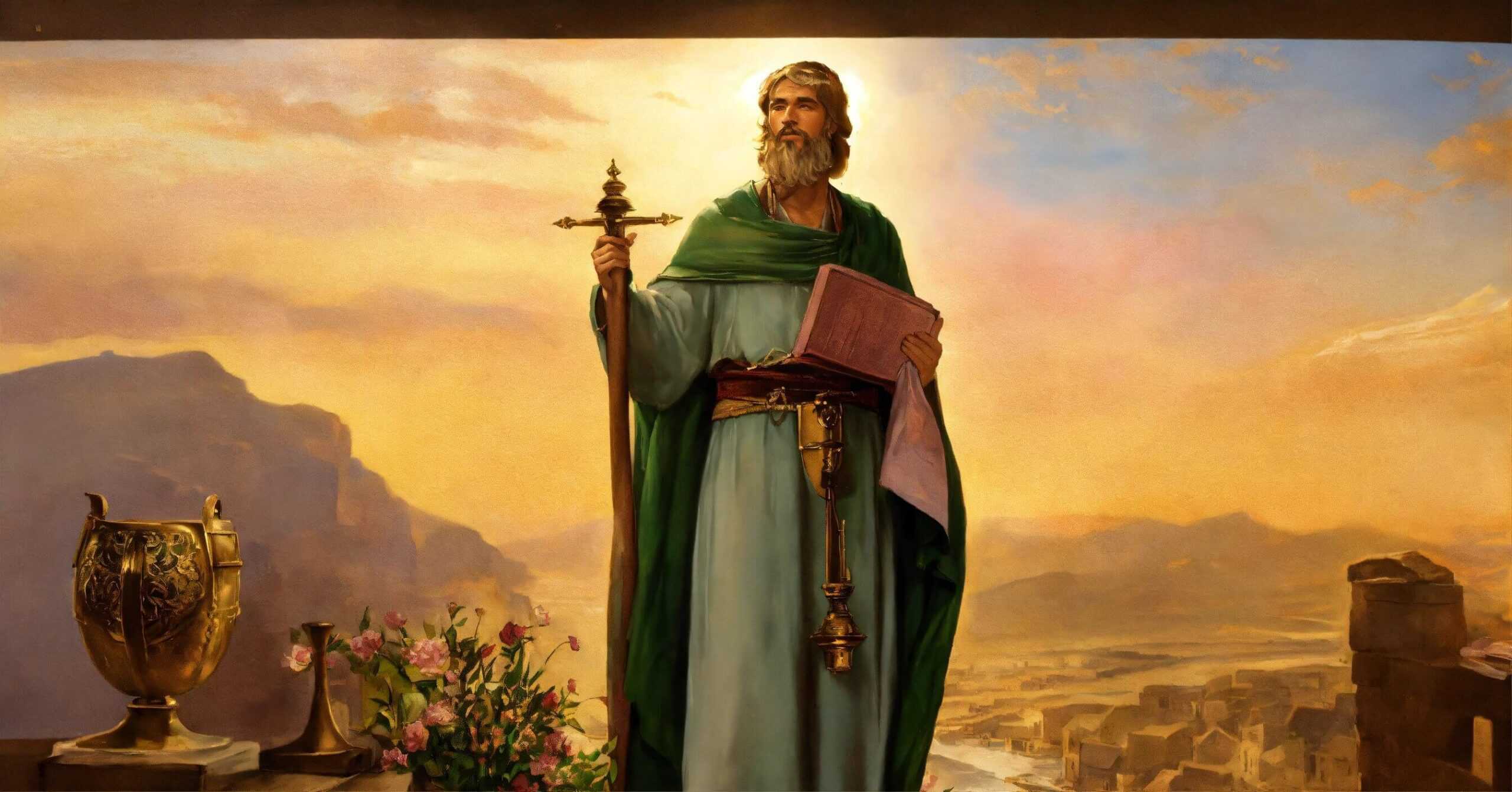Information: Prophet Isaiah
Isaiah, renowned for his profound critique of both individual and collective human sins, was a prophet whose name means “Jehovah saves.” His prophetic ministry spanned from approximately 739 B.C. to around 680 B.C., ending tragically with his martyrdom at the hands of King Manasseh of southern Judah, according to legend—allegedly, he was not executed with a sword, but rather with a saw.
Following the reign of Solomon’s son Rehoboam, Israel underwent a division into northern Israel and southern Judah. In the 8th century BCE, the Assyrian Empire, having lost prominence in the Near East, destroyed Northern Israel in 722 BCE and began posing a threat to Southern Judah.

The Ministry of the Prophet Isaiah
Amid this national crisis, the prophet Isaiah emerged as a voice that called the people of Southern Judah to return to the worship of the Lord God. This longing for the return of the people of Israel to God is palpable in the opening verses of the book of Isaiah:
The vision concerning Judah and Jerusalem that Isaiah son of Amoz saw during the reigns of Uzziah, Jotham, Ahaz and Hezekiah, kings of Judah.
Hear me, you heavens! Listen, earth!
For the Lord has spoken:
“I reared children and brought them up,
but they have rebelled against me.
The ox knows its master,
the donkey its owner’s manger,
but Israel does not know,
my people do not understand.”Woe to the sinful nation,
Isaiah 1:1~6
a people whose guilt is great,
a brood of evildoers,
children given to corruption!
They have forsaken the Lord;
they have spurned the Holy One of Israel
and turned their backs on him.Why should you be beaten anymore?
Why do you persist in rebellion?
Your whole head is injured,
your whole heart afflicted.
From the sole of your foot to the top of your head
there is no soundness—
only wounds and welts
and open sores,
not cleansed or bandaged
or soothed with olive oil.

Isaiah’s description of the state of Southern Judah paints a grim picture—a nation drowning in iniquity, descending ever deeper into moral degradation. He doesn’t mince words when he refers to the political leaders and bureaucrats of Southern Judah as “the officials of Sodom” and the populace as “the people of Gomorrah,” insinuating widespread corruption.
The catalog of Southern Judah’s sins, as chronicled by Isaiah, includes:
- Idolatry: The land is littered with idols, and people worship the works of their own hands, leading to their humiliation (Isaiah 2:8-9).
- Pride in Wealth and Military Might: The people boast of their wealth, treasures, horses, and chariots, placing their confidence in material and military strength (Isaiah 2:7).
- Luxury and Debauchery among Leaders: The elites indulge in early-morning drinking, and late-night revelry, and live lives devoid of concern for the Lord’s work (Isaiah 5:11-12).
- Corrupt Officials: Those in positions of authority accept bribes, pervert justice, and oppress the innocent (Isaiah 5:23; 3:14-15).
- Real Estate Speculation: The rich and powerful accumulate land and property, resulting in extreme wealth inequality (Isaiah 5:8).
The original system of land distribution in Israel, ordained by God, aimed for equitable prosperity, where a tenth of produce was set aside to support the Levites and assist the poor and strangers. However, corrupt politics led to a vicious cycle of wealth concentration and impoverishment, causing the marginalization of the poor from religious life.
Isaiah also highlights the connection between moral decay and sexual depravity. As corruption festers, immodesty and promiscuity rise. The women of Southern Judah are described as haughty, flaunting their wealth and beauty, which ultimately leads to their punishment (Isaiah 3:16-26).
The Lord says,
“The women of Zion are haughty,
walking along with outstretched necks,
flirting with their eyes,
strutting along with swaying hips,
with ornaments jingling on their ankles.Therefore the Lord will bring sores on the heads of the women of Zion;
the Lord will make their scalps bald.”In that day the Lord will snatch away their finery: the bangles and headbands and crescent necklaces, the earrings and bracelets and veils, the headdresses and anklets and sashes, the perfume bottles and charms, the signet rings and nose rings, the fine robes and the capes and cloaks, the purses and mirrors, and the linen garments and tiaras and shawls. Instead of fragrance there will be a stench;
instead of a sash, a rope;
instead of well-dressed hair, baldness;
instead of fine clothing, sackcloth;
instead of beauty, branding.
Your men will fall by the sword,
your warriors in battle.
The gates of Zion will lament and mourn;
destitute, she will sit on the ground.In a society consumed by vice, women engage in immodest behavior, pursuing sensuality and adornments to excess. Isaiah paints a vivid picture of their extravagant jewelry and belongings, representing luxury items of their time. This unchecked vanity and moral decay bring about dire consequences, including physical afflictions, the horrors of war, and the scarcity of men.
Isaiah 3:16~26, NIV
Isaiah prophesies a day when seven women will seek to be associated with one man, seeking to escape disgrace (Isaiah 4:1).
In that day seven women
will take hold of one man
and say, “We will eat our own food
and provide our own clothes;
only let us be called by your name.
Take away our disgrace!
Isaiah 4:1, NIV

Conclusion: Consequences of moral and ethical decay on individuals, societies, and nations
The overarching message in Isaiah’s critique is clear: moral and ethical decay can have far-reaching consequences on individuals, societies, and nations. His words serve as a call to repentance and a return to righteousness, justice, and God’s ways.





